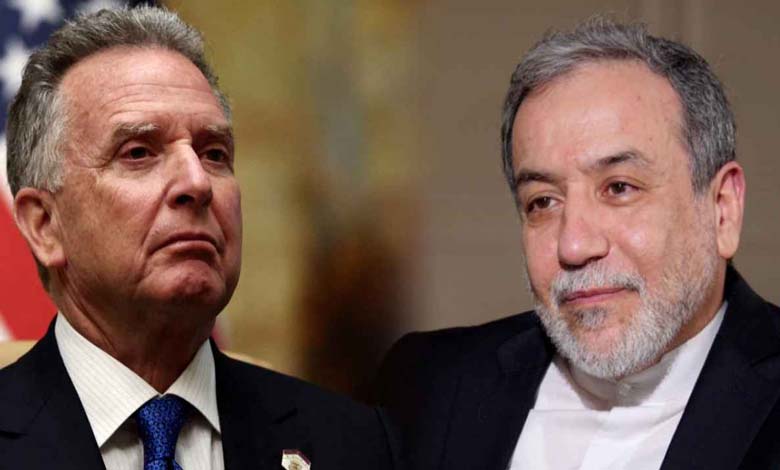Nuclear Talks: Iran Rejects Washington’s Proposal and Prepares an Alternative

While Iran has officially rejected the latest American proposal, it has left the door open by announcing that a counterproposal is currently being prepared, along with conditions for the lifting of sanctions.
-
Khamenei, Iran’s Illness and the Obstacle to Any Agreement with Washington
-
Washington Tests Military Capabilities Amid Escalation Between Israel and Iran
On Monday, Iranian Foreign Ministry spokesman Esmail Baghaei stated that Tehran would soon present a counterproposal in the framework of nuclear talks to the United States via the Sultanate of Oman.
This announcement comes in response to a U.S. proposal that Tehran deemed “unacceptable.”
-
Washington rules out Iran and its proxies’ involvement in expanding the war
-
Washington sends messages to Iran and Hezbollah via Turkey… Details
Baghaei said, “The American proposal is not acceptable to us,” noting that it “does not reflect the outcomes of previous negotiation rounds.”
He added, “We will present our own proposal to the other party through Oman once it is finalized. It is a reasonable, logical, and balanced proposal.” He did not provide further details.
He emphasized that “before lifting sanctions, we must ensure that Iran will benefit economically in an effective way and that its banking and trade relations with other countries will return to normal.”
-
Washington Imposes New Sanctions on Iranian Individuals and Entities… What’s New?
-
Washington doubts the seriousness of forming a naval alliance comprising Iran and Gulf states
No Set Date for the Next Round
Earlier, Reuters reported that Tehran was working on a response after rejecting a U.S. proposal submitted in late May.
An Iranian diplomat told the agency that the U.S. offer did not address key issues, including uranium enrichment on Iranian soil, the full transfer of Iran’s stockpile of highly enriched uranium abroad, and the process for lifting U.S. sanctions.
Regarding the timing of the sixth round of nuclear talks between Iran and the U.S., Baghaei stated that no specific details were currently available.
-
Washington: Houthi aims to expand Iran project in region
-
Khamenei Responds to Washington Over Uranium Enrichment
Meanwhile, the Iranian Foreign Ministry spokesman called on the international community to work towards the denuclearization of Israel, accusing Tel Aviv of attempting to sabotage the nuclear negotiations.
Last week, Iran’s Supreme Leader Ali Khamenei rejected the U.S. proposal, claiming it goes against Iran’s national interests. He vowed that Tehran would continue enriching uranium — a process Western powers argue could lead to nuclear weapons — while Iran maintains its nuclear program is strictly peaceful.
-
Iran Criticizes U.S. Sanctions Policy Ahead of Key Cairo Nuclear Meeting
-
Saudi Arabia Warns Iran of Trump’s Waning Patience
During his first term, former U.S. President Donald Trump withdrew from the 2015 nuclear deal in 2018, reimposing sanctions that severely impacted Iran’s economy. In response, Tehran ramped up its uranium enrichment activities far beyond the limits set by the agreement.
Sensitive Documents on Israel’s Nuclear Program
Iran contends that the West turns a blind eye to Israel’s nuclear arsenal while exerting pressure on Tehran’s program. Israel has neither confirmed nor denied possessing nuclear weapons.
Baghaei pointed out that sensitive Israeli documents — which Iran had previously promised to reveal — would prove that “the parties continuously questioning the peaceful nature of Iran’s nuclear program are actively working to strengthen Israel’s military nuclear capabilities.”












